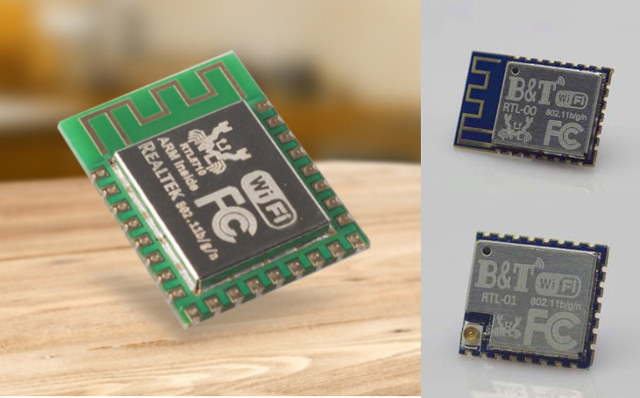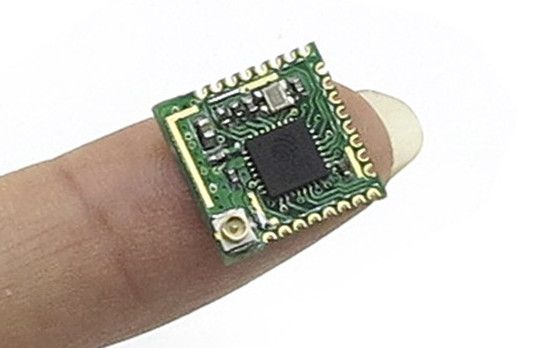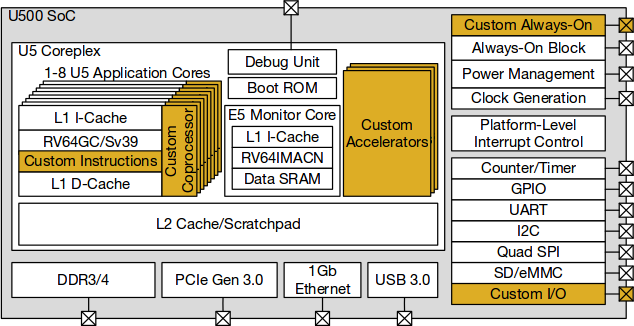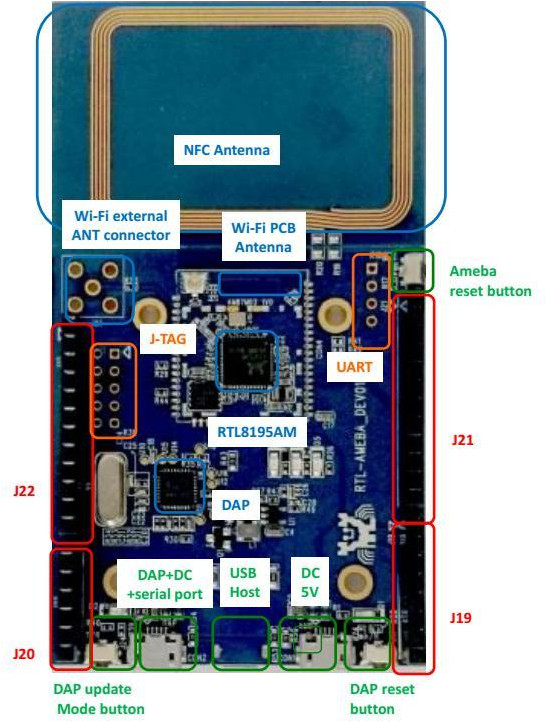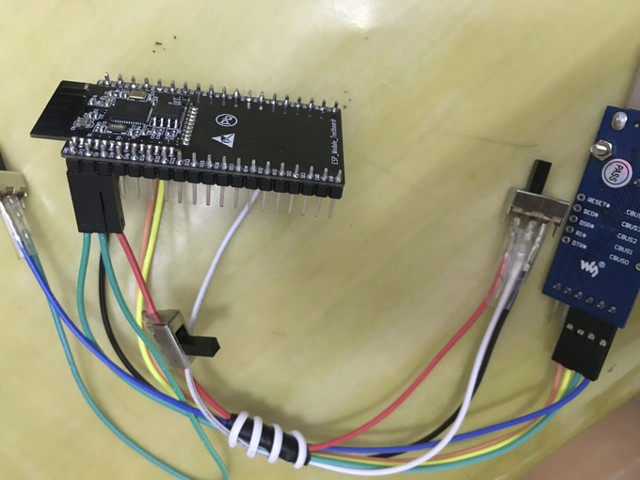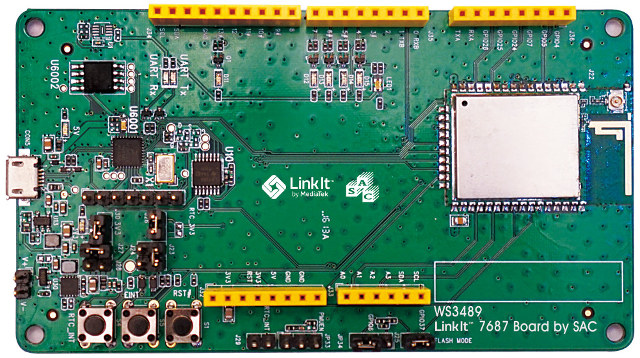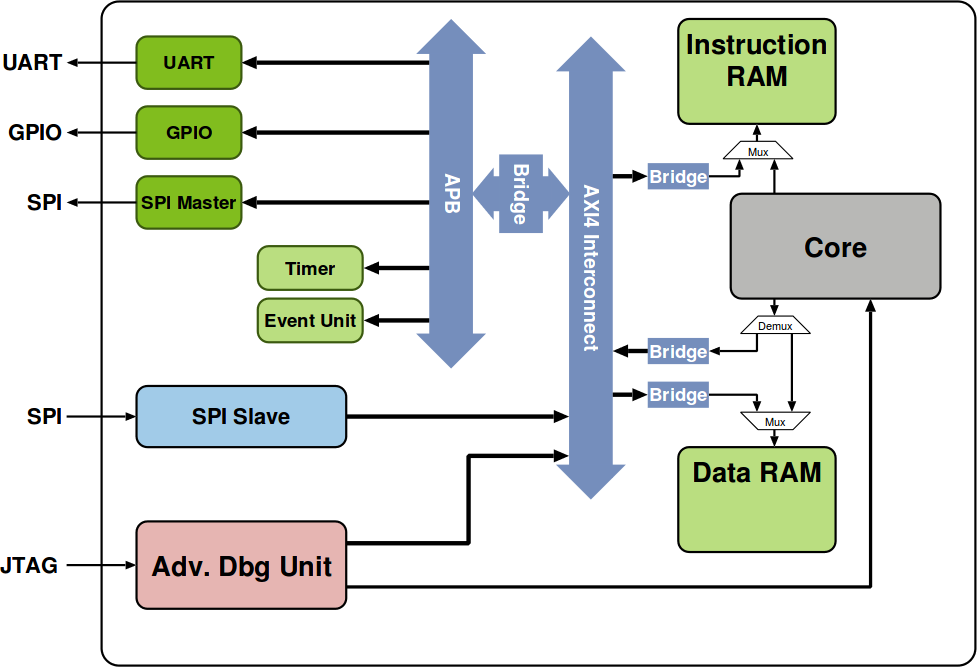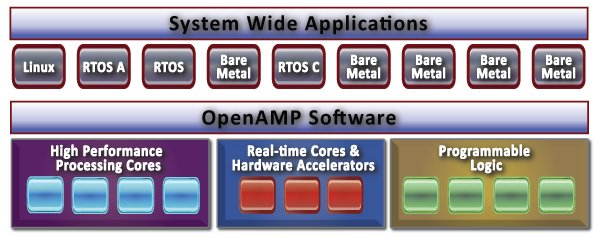ESP8266 WiFi modules initially stormed the maker market for IoT applications thanks to their low price, and later it became the dominant WiFi IoT platform for hobbyists thanks to its large community of developers. But technology progresses over time, and it’s always fun to look out for new solutions, and Realtek RTL8710 could prove to be an interesting alternative with its ARM Cortex-M3 processor @ 166 MHz, a little more user memory (48KB), audio support, faster WiFi performance, while still keeping a low price, as modules can be purchased for $3.90 on ICS station, a little more on eBay, and as low as $1.95 per unit on Aliexpress including shipping if you purchase 100 pieces or more. A Chinese website as a side-by-side comparison between Realtek RTL8710 and Espressif ESP8266, which I also found translated into English. Realtek RTL8710 Espresif ESP8266 Package QFN-48 (6×6 mm) QFN-32 (5×5 mm) CPU ARM […]
PSF-A85 is a $2 ESP8285 WiFi Board for IoT and Wearables
Last month, we found out that Espressif has made a smaller version of ESP8266 targeting wearables called ESP8285, but the only development board available at the time was quite more expensive than usual at about $25. ITEAD has now released an ESP8285 module with some I/Os and an IPEX connector which they sell for just $1.99 + shipping. PSF-A85 specifications: SoC – Espressif ESP8285 Tensila WiFi SoC @ 80/160 MHz with 1MB flash Connectivity WiFi 802.11 b/g/n/d/e/i/k/r with support for STA/AP/STA+AP modes, WPA/WPA2 PSK and WEP security Antenna – IPEX connector (antenna not included) or “stamp hole interface” Expansion – 24-pin with GPIO, PWM, UART up to 460800 bps, SPI, ADC, Power Supply – 3.3 V Dimensions – 13.7 x 13.4 mm More technical information include the schematics (PDF only) and ESP8285 datasheet can be found in the Wiki, which sadly does not contain any software / getting started information, […]
SiFive Introduces Freedom U500 and E500 Open Source RISC-V SoCs
Open source used to be a software thing, with the hardware design being kept secret for fear of being copied, but companies such as Texas Instruments realized that from a silicon vendor perspective it would make perfect sense to release open source hardware designs with full schematics, Gerber files and SoM, to allow smaller companies and hobbyists, as well as the education market, normally not having the options to go through standard sales channels and the FAE (Field Application Engineer) support, to experiment with the platform and potentially come up with commercial products. That’s exactly what they did with the Beagleboard community, but there’s still an element that’s closed source, albeit documented: the processor itself. But this could change soon, as SiFive, a startup founded by the creators of the free and open RISC-V architecture, has announced two open source SoCs with Freedom U500 processor and Freedom E300 micro-controller. Freedom […]
$25 Ameba Arduino IoT Board Powered by Realtek RTL8195AM MCU Supports WiFi and NFC
Ameba Arduino is another development board for the Internet of Things, but beside WiFi connectivity, it also includes an NFC tag, and can support Ethernet via Arduino compatible headers. The brain of the board is Realtek RTL8195AM ARM Cortex M3 MCU that includes WiFi connectivity, hardware SSL, SRAM, and flash. Ameba Arduino Specifications: MCU – Realtek RTL8195AM ARM Cortex M3 @ up to 166MHz with 512KB SRAM, 1MB ROM, WiFi connectivity, hardware SSL engine Memory – 2MB SDRAM Connectivity – WiFi 802.11 b/g/n 1T1R with PCB antenna and external antenna connector, NFC tag with read/write Function, 10/100M Ethernet via expansion headers USB – 1x micro USB OTG port, 1x micro USB host port Expansion Headers SDIO Device/SD card controller Up to 30x GPIOs 2x SPI interfaces supporting master and slave modes 3x UART interfaces including 2 HS-UART and one log UART 4x I2C Interfaces supporting master and slave mode 2x […]
Get an Early ESP32 Board by Contributing to Luanode for ESP8266 & ESP32 Project (Crowdfunding)
Development boards and module based on Espressif ESP32 dual core processor with WiFi and Bluetooth LE connectivity are due for Q3 or Q4 2016, but you could get an early sample as early as July if you contribute to Jimmy Wu’s (of wifimcu.com) crowdfunding campaign to develop Luanode (Lua SDK) for ESP8266 and ESP32 processors, as ESP32 boards are part of the rewards. Luanode is a Lua SDK for ESP32 and ESP8266 that supports multi-tasking through FreeRTOS, and includes support for peripherals. The source code and documentation can be already be found on Github, and the main differences against something like NodeMCU appear to be multi-tasking and (for now) ESP32 support. Interestingly the SDK contains a tools called WiFi-Killer uses for Denial of Service (DoS) attacks using ESP8266 or ESP32 modules… One hardware project is called WiFi tank comprised of one T300 Tank Chassis, ESP8266 Development Kit, 720p HD Camera, […]
$20 MediaTek LinkIt 7687 Arduino Compatible WiFi IoT Board Runs FreeRTOS
MediaTek Labs has already launched several WiFi boards for IoT applications starting with LinkIt ONE, and later LinkIt Smart 7688 running OpenWrt, and the company is now about to launch LinkIt 7687 HDK (Hardware Development Kit) powered by Mediatek MT7687F Cortex-M4 SoC, running FreeRTOS, and developed & produced by Silicon Application Corp (SAC). LinkIt 7687 (WS3489) board specifications: SoC – MediaTek MT7687F ARM Cortex-M4F MCU @ 192MHz with 352 KB SRAM, 64KB ROM, and 2 MB serial flash in package, integrated security engine, and built-in 802.11n WiFi. 8×8 mm 68-pin QFN package Connectivity – 1×1 802.11 b/g/n WiFi with on-module PCB antenna and U.FL connector. USB – 1x micro USB for power, debugging (Coresight Debug Access Port + Virtual COM) Expansion Arduino Uno Rev. 3 headers + an extra 8-pin extension connector. Mass Storage Device (MSD) flash programming interface. Reserved headers for power consumption (current) measurement. Misc – LEDs for […]
PULPino Open Source RISC-V MCU is Designed for IoT and Wearables
lowRISC is not the only open source processor project based on RISC-V instructions, as researchers at ETH Zurich university and the University of Bologna have developed PULPino open-source processor based on RISC-V instructions set, optimized for low power consumption, and targeting wearables and the IoT applications. PULPino is a single core processor derived from the PULP project (Parallel Ultra-Low-Power Platform) featuring a quad core RISC-V SoC with new RI5CY Signal Processing ISA extensions designed by the universities. The core has an IPC (instructions per cycle) close to 1, full support for the base integer instruction set (RV32I), compressed instructions (RV32C) and partial support for the multiplication instruction set extension (RV32M). PULPino also features peripherals such as I2S, I2C, SPI and UART. PULPino has already been taped out as an ASIC in UMC 65nm at the beginning of the year, but the RTL code be run on Xilinx Zynq-7010 powered Zedboard, […]
OpenAMP Open Source Framework Provides the Glue between Linux, RTOS, and Bare Metal Apps in Heterogeneous SoCs
SoCs becoming more complex, and go beyond homogeneous multicore systems by mixing different type of cores such as high performance cores, low power real-time cores, or even FPGA fabric. Examples include NXP i.MX6 SoloX with an ARM Cortex A9 core for Linux apps, and an ARM Cortex M4 core for real-time tasks, or Xilinx Zynq UltraScale+ MPSoC with Cortex A53 core for higher level apps, Cortex R5 cores for real-time processing, and Ultrascale FPGA logic. All these different cores are running their own Linux based OS, real-time operating system or bare metal application, and all this makes software development an even greater difficult tasks. In order to reduce the complexity, and address some of the issues, the Multicore Association has launched a new working group targeting the management, expansion, and standardization of OpenAMP (Open Asymmetric Multi Processing), an open source framework that allows operating systems to interact within a broad […]


